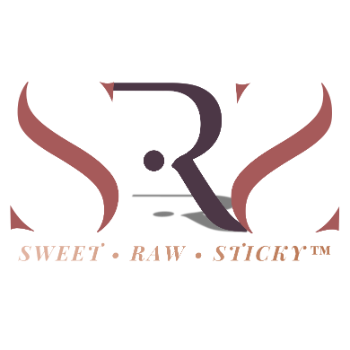Banned But We Sang Anyway: The Hidden History of Black Women’s Erotic Music
Nov 5, 2025 | By: Velvet Lenae
Sweet·Raw·Sticky- November Series, Part 1
Black women have always said the things the world wasn't ready to hear. We just said it in code.
Before there was WAP, City Girls, Sexxy Redd, or even Lil' Kim, there were women in the 1920s-40s blues era singing about sex, appetite, same gender love, and straight up satisfaction. They didn't have TikTok, they didn't have streaming, and in a lot of cases they didn't even have radio play. So they tucked desire into metaphors, food references, and playful "I'm just joking" lyrics.
But make no mistake, it was erotic music. By Black women. And a lot of it was banned, suppressed, or never promoted because it was "too much."
The women the industry tried to quiet
Names you'll hear me say a lot- Lucille Bogan, Bessie Smith, Ma Rainey, Dinah Washington. these women were singing about pleasure long before it was "cool."
- Lucille Bogan - "Shave 'Em Dry" (1935), often called the filthiest pre-war blues. No metaphor. She said what she wanted.
- Bessie Smith - "Kitchen Man." food as sex, female appetite front and center.
- Ma Rainey - "Prove It On Me Blues," a Black woman basically saying "yeah, I was out with women...and?"
- Blue Lu Barker - "Don't You Feel My Leg," flirting + boundary + desire.
- Dinah Washington - "Long John Blues," comedy wrapped around sex, but still about a woman being pleased.
These weren't accidents, These songs were erotic rebellion wrapped in blues, humor, and double meaning. They were Black women creating their own sexual language in a world that either hypersexualized them or demanded they be "good Christian wives." That tension, between being desired and being silenced, is exactly why so many of these records stayed underground.
Why they were called "too much"
These songs were sidelined because:
1. They centered female pleasure. Not "I please him" - "He pleased me."
2. They were explicit about bodies. Even when it was metaphor, everybody knew.
3. Some were queer. "B.D. Women's Blues," is a whole receipt that queer Black women were here in 1935.
4. They were Black. A white woman being suggestive was "naughty." A Black Woman being sexual was "indecent."
So when people come online in 2025 saying, "Music is so nasty now"...I laugh. Ummm NO. We just have receipts now.
So where does Sweet·Raw·Sticky come in?
Because what those women were doing is exactly what I'm doing. And what I know what you want to do.
- Sweet is the softness they tried to strip away. Black women weren't allowed to be tender and sensual. We were either sainted or shamed.
- Raw is the truth that still made it to the mic. Even with bans, even with the church watching, even with America policing Black bodies, the truth still came through.
- Sticky is the part that lingers, the legacy. You hear "Shave 'Em Dry" and you can draw a straight line to Khia, Trina, City Girls, Sexxy Red, Doja. That's stickiness.
This is why I keep saying we are not doing something brand new. We are picking up where they had to whisper.
Why this matters right now
Because a lot of us were raised in church/ respectability / "don't be fast" households...and we internalized the shame without ever seeing that we actually come from a line of women who were not ashamed. The shame was taught. The pleasure was inherited.
And because I'm introducing Sweet·Raw·Sticky to y'all. I wanted to start here. With the women who got banned. So you know this isn't just a cute name. It's a cultural throughline:
from Lucille Bogan to Trina
from Ma Rainey to Janelle Monae
from Bessie Smith to Jazmine x Ari "On It"
from Dinah Washington to Ari Lennox / Teyana /Beyonce" Partition" era
Same desire. New volume.
Gratitude moment
I'm grateful for the banned Black Women who sang anyway.
I'm grateful for every artist who put pleasure on wax so we could put pleasure on live.
I'm grateful for the queer pioneers who told the truth before the world could handle it.
I'm grateful for the songs that never made radio because the world didn't want to see empowered Black Women.
Because every time you post something sensual and somebody says "you don't have to do all that"...just know we've been 'doing all that" since 1935.
What was your first "nasty" song? The one you learned all the words to. And did you realize it had roots in Black Women's Blues?
Drop it below so I can connect it to the "then vs now" list in the next post.


Leave a comment
0 Comments